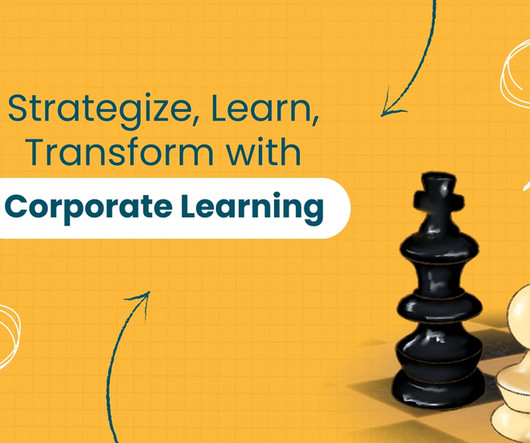This Is What I Believe About Learning in Organizations
The Performance Improvement Blog
SEPTEMBER 14, 2018
This is a future in which workers are smarter, more agile, and more innovative. The skilled worker today wants a different kind of experience. People realize they need interpersonal skills, creativity, reasoning, and empathy. Data indicates that less than 20% of participants apply learning from formal training programs.
































Let's personalize your content